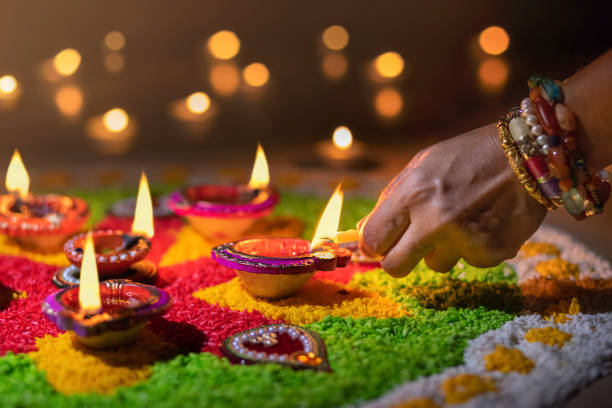
Diwali, also known as Deepavali, is one of the most significant festivals celebrated by Hindus worldwide. It usually falls between mid-October and mid-November, depending on the lunar calendar. The word “Diwali” itself signifies a row of lights, and the festival is aptly named as it symbolizes the victory of light over darkness, good over evil, and knowledge over ignorance.
The celebration of Diwali holds various cultural, religious, and historical significance across different regions of India. One of the most common narratives associated with Diwali is the return of Lord Rama, along with his wife Sita and brother Lakshmana, to Ayodhya after a 14-year exile and his victory over the demon king Ravana. In celebration of their return, the people of Ayodhya illuminated the entire city with earthen lamps, thus marking the beginning of the tradition of lighting lamps during Diwali.
Apart from the Ramayana, Diwali also holds significance in other Hindu mythological stories, such as the victory of Lord Krishna over the demon Narakasura and the worship of the goddess Lakshmi, the goddess of wealth and prosperity, on this auspicious day.
Today, Diwali is celebrated with great enthusiasm by cleaning and decorating homes, exchanging gifts and sweets, bursting fireworks, and lighting oil lamps and candles. It is a time for families to come together, to seek blessings from deities, and to spread joy and happiness among loved ones and communities.
